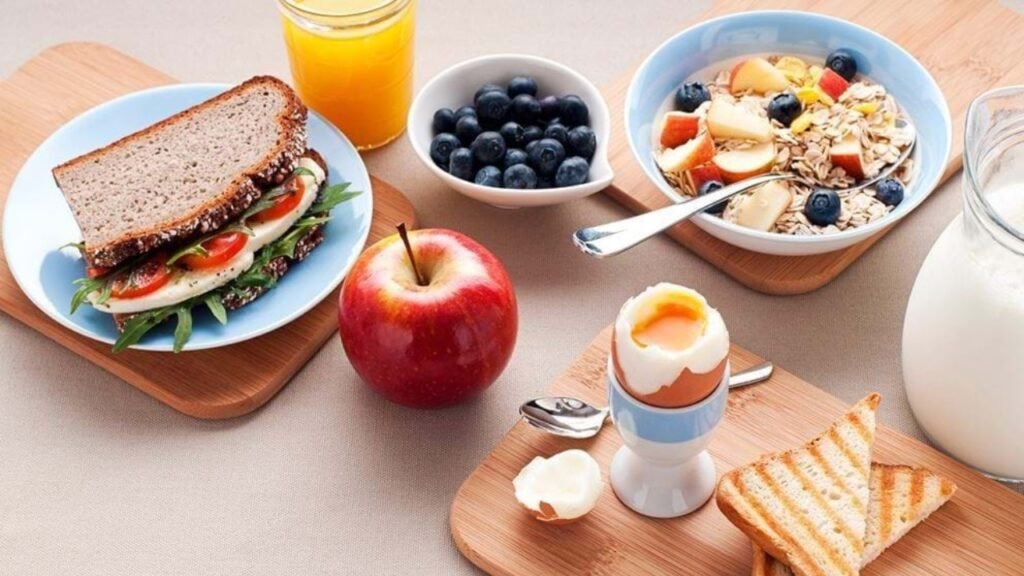Among workout lovers, one of the most significant meals of the day is the breakfast before the workout. A balanced breakfast pre-workout meal not only provides energy but also maximizes your workout performance. The food you eat before hitting the gym can directly influence both your performance and recovery, whether you’re into strength training or endurance exercises. It’s an essential meal that many neglect in favor of a quick snack or, even worse, skipping it entirely. In this blog, we explore what a pre-workout breakfast meal can do and which foods to include for optimal results.
Why You Need a Breakfast Pre-Workout Meal
After a long night of fasting, your body craves nourishment. The glycogen stores in your muscles and liver have been depleted, and your body is set to rely on its reserves for energy. A balanced pre-workout nutrition breakfast helps replenish these reserves, giving you the energy you need for exercise. According to Dr. John Berardi, a renowned nutrition expert, eating a balanced meal before exercising enhances endurance and aids in muscle recovery.
The Role a Pre-Workout Breakfast Plays to Fuel Your Body
Breakfast as a pre-workout strategy is highly effective because it provides the necessary carbohydrates that fuel your muscles. These carbs are stored as glycogen, which your muscles rely on during intense exercises. Opting for complex carbs like oatmeal, whole-grain bread, or fruit ensures a steady release of energy without spikes or crashes, preventing fatigue in the middle of your workout.
Protein for Muscle Repair
In addition, protein consumption during your breakfast pre-workout meal is vital for muscle repair and growth, especially if you’re engaged in strength training or resistance exercises. Foods rich in protein like eggs, Greek yogurt, and lean meats provide the essential nutrients required for muscle tissue recovery and rebuilding.
Healthy Fats for Lasting Energy
Lastly, healthy fats from sources like avocado, nuts, or seeds help maintain consistent energy levels and satisfy hunger throughout your workout, ensuring you stay focused and fueled.
When to Eat to Get the Best Out of Your Pre-Workout Breakfast
The timing of your pre-workout breakfast is just as important as the food itself. Ideally, you should eat about 30-60 minutes before your workout. This allows your body sufficient time to digest and convert the nutrients into usable energy. However, individual preferences may vary. Some prefer to eat a little earlier, while others feel comfortable with a smaller window of time. Experimenting with timing can help you determine what works best for your body.
Which Foods Are Best for a Pre-Workout Breakfast?
As we’ve discussed, the pre-workout breakfast meal is crucial for performance. Here’s what to include for optimal energy and recovery:
- Complex Carbs: Oats, whole wheat bread, brown rice, and quinoa are excellent options that provide steady energy.
- Lean Proteins: Foods like eggs, Greek yogurt, cottage cheese, or a protein shake with whey or plant-based protein help with muscle recovery.
- Healthy Fats: Avocados, nuts, seeds, and olive oil are great sources of lasting energy.
- Fruits and Vegetables: Bananas, berries, spinach, and sweet potatoes offer essential vitamins and minerals that aid in hydration and performance.
Incorporating these foods into your pre-workout breakfast will provide the right energy and nutrients for an optimal workout.
How Hydration Complements Your Pre-Workout Diet
Hydration is often overlooked when planning a pre-workout breakfast meal, but it plays an equally important role. Dehydration can lead to fatigue, reduced endurance, and difficulty concentrating. Make sure to start your day with a glass of water and consider an electrolyte drink to enhance hydration and improve performance.
Common Myths and Mistakes to Avoid with Pre-Workout Meals
Missing Breakfast
Skipping breakfast can lead to low blood sugar, low energy, and poor workout performance. Make sure you fuel up before your workout.
Overeating
While a balanced breakfast is important, overeating can make you feel sluggish or bloated during exercise. Focus on smaller portions to provide energy without overwhelming your body.
Choosing Sugary Snacks
Sugary snacks may provide an initial burst of energy, but they can cause an energy crash midway through your workout. Instead, focus on balancing carbs, proteins, and healthy fats for sustained energy.
Conclusion: How a Pre-Workout Breakfast Maximizes Your Performance
In conclusion, a breakfast pre-workout meal is more than just a food intake; it’s the final step in preparing your body for maximum performance. By providing your body with the right nutrients, you ensure it has the energy to perform at its best, leading to improved strength, endurance, and faster recovery.
With the right timing, food choices, and hydration, your body will be properly fueled for optimal performance. Regardless of your training level, a balanced pre-workout meal can make a significant difference. So, next time you plan your workout, remember: your pre-workout nutrition is just as important as the workout itself.


